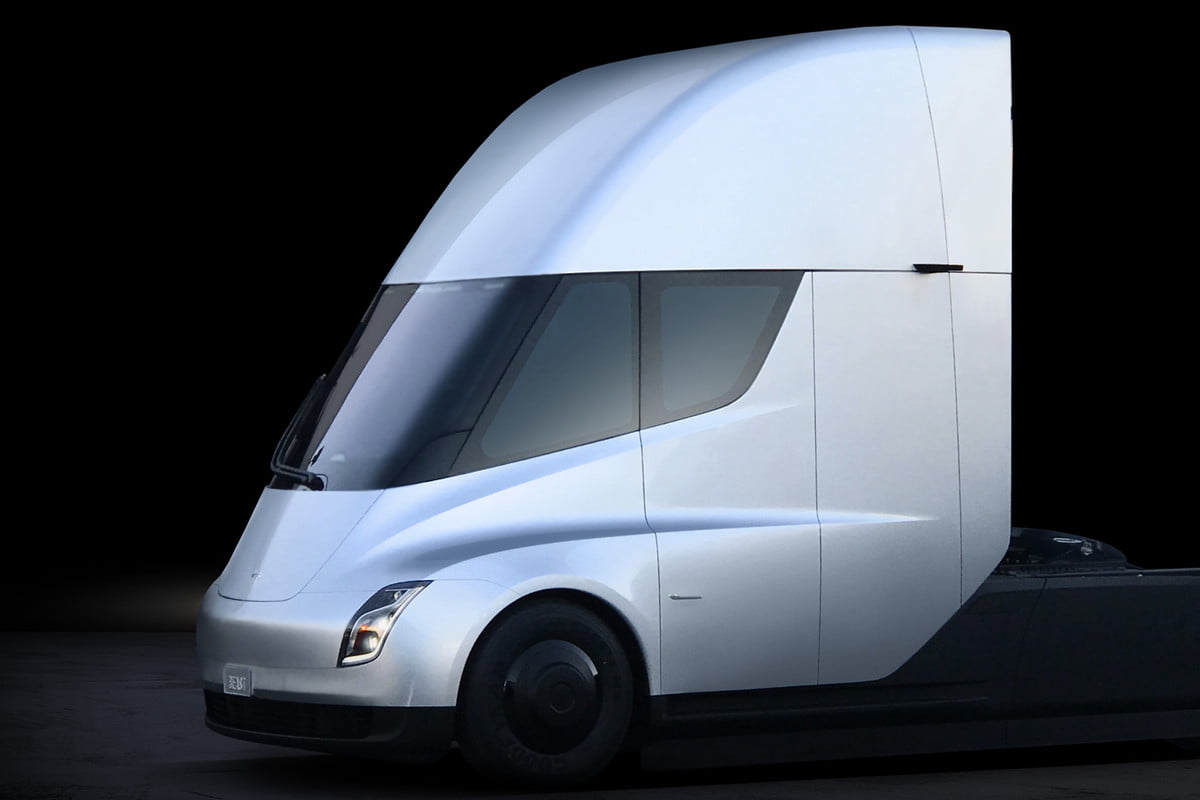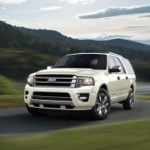/cdn.vox-cdn.com/uploads/chorus_image/image/57631755/TeslaTruck.1510857322.png)
Electric carmaker Tesla unveiled a sleek electric semi truck with semi-autonomous capabilities and a new roadster Thursday evening in a flashy live-streamed event at its design studio in Hawthorne, California.
Emphasizing the truck’s “badass” performance, Tesla CEO Elon Musk pitched the new Tesla Semi as the safest, most comfortable truck ever.
The semi is a fully electric Class 8 truck, a category of freight vehicles that weigh more than 33,000 pounds, including tractor-trailer rigs that form the backbone of commercial road freight. This one, Musk said, can haul 80,000 pounds.
Tesla’s offering has a range of 500 miles at maximum weight at highways speeds, much higher than early spec reports of a range of 300 miles. Musk said the truck has a coefficient of drag of just 0.36, making it more aerodynamic than the Bugatti Chiron, a $2.7 million supercar with a drag coefficient of 0.38.
Safety features include automatic braking, lane tracking, and “nuclear explosion-proof glass” for the windshield.
The truck can gain 400 miles of range with just a 30-minute charge from a “megacharger,” and its operating cost per mile is 20 percent below that of conventional diesel semi trucks.
“Every truck we sell will have enhanced autopilot as standard,” Musk said. That means semi-autonomous capabilities for breaking and keeping in lanes. Using the autopilot system, several Tesla trucks can form a convoy on highways, driving the operating cost down further.
“It’s not just economic suicide to use one diesel truck, it’s economic suicide for rail,” Musk said. “This beats rail.”
Though Tesla says the payback period in averted fuel costs on the truck would be just two years, it did not reveal a retail price. Production is slated to begin in 2019.
At the end of the event, Musk also presented the company’s new four-seat roadster, a car with 620 miles of range that can go from zero to 60 mph in 1.8 seconds. “The point of doing this is to give a hardcore smackdown to gasoline cars,” Musk said. Tesla also claims it’s the fastest production car ever made.
The semi truck is clearly a major departure from Tesla’s core consumer-oriented cars like the Model S and the Model X, which are high-end electric daily drivers that compete with luxury cars.
Tesla’s first foray into commercial vehicles puts it into competition with a different cadre of manufacturers — truck makers, rather than carmakers. And marketing trucks is quite different from marketing luxury cars. But already at least one trucking company has placeda reservation to order Semis.
It’s clear that the truck’s self-driving capabilities herald a massive change coming in the economy. The White House Council of Economic Advisers in a report last year found that vehicle automation could threaten 2.1 million to 3.3 million jobs.
Electric trucks like Tesla’s could also have big implications for the environment.
Commercial vehicles, particularly trucks, are a major source of greenhouse gas emissions. According to the US Department of Energy, Class 8 trucks transport 80 percent of all goods in the United States and account for 22 percent of total energy use in transportation, burning through 28 billion gallons of fuel each year across 2.5 million trucks, each one racking up 66,000 miles annually on the odometer.
Around the world, these trucks account for 7 percent of greenhouse gas emissions and guzzle 17 million barrels of oil per day, with demand growing by 1.9 percent per year, according to the International Energy Agency.
Musk has dropped hints about the truck throughout the year, along with hyperbolic claims that “[i]t can transform into a robot, fight aliens and make one hell of a latte.”
But the launch was delayed by a few months.
Musk attributed the delays to production issues with the Model 3 electric car as well as to Tesla’s efforts to help restore power in Puerto Rico after Hurricane Maria struck two months ago.
Much of the work on reducing the environmental impact of trucks has focused on getting existing manufacturers to make them more efficient and pollute less, but if they go all electric, pollution will drop to zero. Battery technology has only recently caught on to the needs of the commercial transport industry, and fleet vehicles could provide automakers a more robust business case. This could be an advantage for electric-first manufacturers like Tesla.
Vox’s David Roberts recently made a similar point about electrifying buses. Though we don’t have any information about the price for Tesla’s new truck, it, like electric buses, may have a higher upfront price than its diesel competitors with savings distributed across its life cycle in avoided fuel costs.
Other manufacturers are not sitting idle. Nikola Motor Company now offers a fuel cell-powered truck. The diesel engine manufacturer Cummins revealed an electric Class 7 truck in August. And the Canadian retailer Loblaw Companies Limited launched its own electric Class 8 truck last week.
[“Source-vox”]





